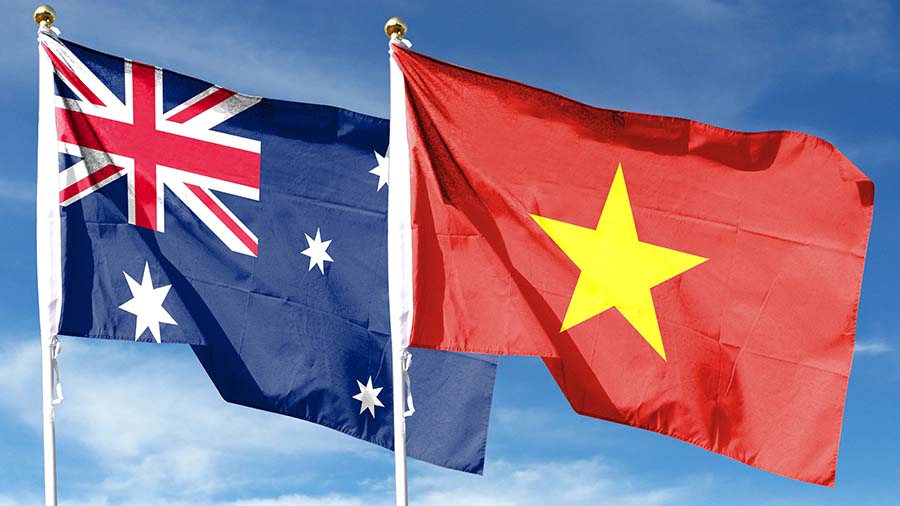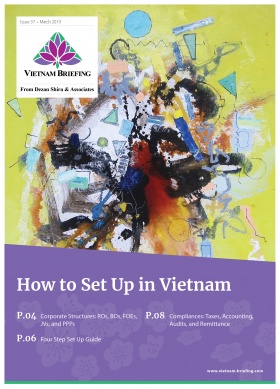Despite Economic Slowdown, Vietnam Banks on Domestic Tourism and Real Estate
- As Vietnam continues to recover its economy it is looking internally at industries such as domestic tourism and real estate to spur growth.
- Vietnam’s control of the pandemic and early reopening of the economy compared to others has given it an early advantage.
- Vietnam Briefing looks at the reasons for this and what can be expected in the near to medium term.
With Vietnam containing the COVID-19 pandemic better than others, the government has looked to spur growth to ensure it can recover and maintain a high GDP growth rate. The government has maintained a high GDP growth target of 6.8 percent despite the pandemic and strives to implement measures to stimulate economic recovery while adapting to the new economic reality.
The economic slowdown is also unlikely to affect Vietnam’s position as a promising investment destination. The country’s impressive handling of the COVID-19 crisis will only accelerate the influx of foreign companies who already see the advantages of Vietnam’s political stability, skilled workforce, and record of strong economic growth as they seek to minimize value chain disruptions by relocating their manufacturing away from China.
To look at how Vietnam is coping, we examine how tourism and real estate are one of the focus areas, which the government is banking on to help recover the economy
Post pandemic tourism
Tourism is one of the most severely hit industries by the pandemic. Less than a month ago, Vietnam Airlines was seeking several hundred million dollars in government credit to maintain its employee salaries and cover parking and maintenance fees of its grounded fleets. With Vietnam’s borders still closed to international visitors, the tourism industry has turned its attention to the domestic market.
Since May, Vietnam Airlines has slowly started to resume its domestic operations. Recently, it added three new routes flying from Da Lat to Can Tho, Hue, and Thanh Hoa, with plans to open two other routes later in July. Low-cost airline VietJet Air has partnered up with social media giant Facebook and the Ministry of Planning and Investment (MPI) to launch the ‘Immense Vietnam – Fly green with Vietjet’ program, which offers a promotion discount on ticket prices for all domestic routes to promote investment and tourism development.
The government too has been gearing up for post-pandemic tourism. In mid-June, the Prime Minister gave the green light to a US$9.3 billion tourist resort in Can Gio district south of Ho Chi Minh City. Led by Vietnamese conglomerate Vingroup, the project had been pending approval for several years due to concerns over potential environmental impacts.
However, the government’s decision reflects pressure to accelerate economic recovery. More recently, a new proposal laid out plans for a high-class marine resort in Ha Tinh province with an investment of nearly US$43 million.
Real estate – safe bet but reforms needed
There have been several proposals to amend current laws on real estate ownership to allow foreigners to own hospitality real estate. While the supply of resorts and condotels has been increasing, the absence of a legal framework has made it difficult to attract foreign investment.
There has certainly been a strong interest in Vietnam’s luxury property products. American investment firm KKR & Co., who owns a six percent stake in Vietnam’s largest real estate developer Vinhomes, expects its profits to triple or quintuple in the next decade due to a rising middle income and affluent class in Vietnam.
In light of the current pandemic, the Central Institute for Economic Management predicts in its most optimistic scenario that the domestic real estate market will grow in the fourth quarter of this year if the economy is restored to pre-pandemic levels.
In a more likely scenario, a gradual recovery of the domestic and global economies will keep the real estate market quiet, but not cause it to collapse. Experts say that although high domestic demand will continue in the upcoming years, there is a need for more investment in affordable apartments.
In Ho Chi Minh City where both domestic and foreign demand is concentrated, the prices of townhouses saw a 36 percent increase year-on-year for each square meter. To efficiently meet housing needs, the city will focus on the development of high rise apartments and connecting infrastructure in the next ten years. In the context of economic uncertainty, those with stable incomes may see real estate as an attractive and safe investment.
About Us
Vietnam Briefing is produced by Dezan Shira & Associates. The firm assists foreign investors throughout Asia from offices across the world, including in Hanoi and Ho Chi Minh City. Readers may write to vietnam@dezshira.com for more support on doing business in Vietnam.
- Previous Article Why EVFTA’s Success Will Depend on Vietnam’s Administration Reforms
- Next Article Vietnam’s Lao Cai: An Investment Spotlight































